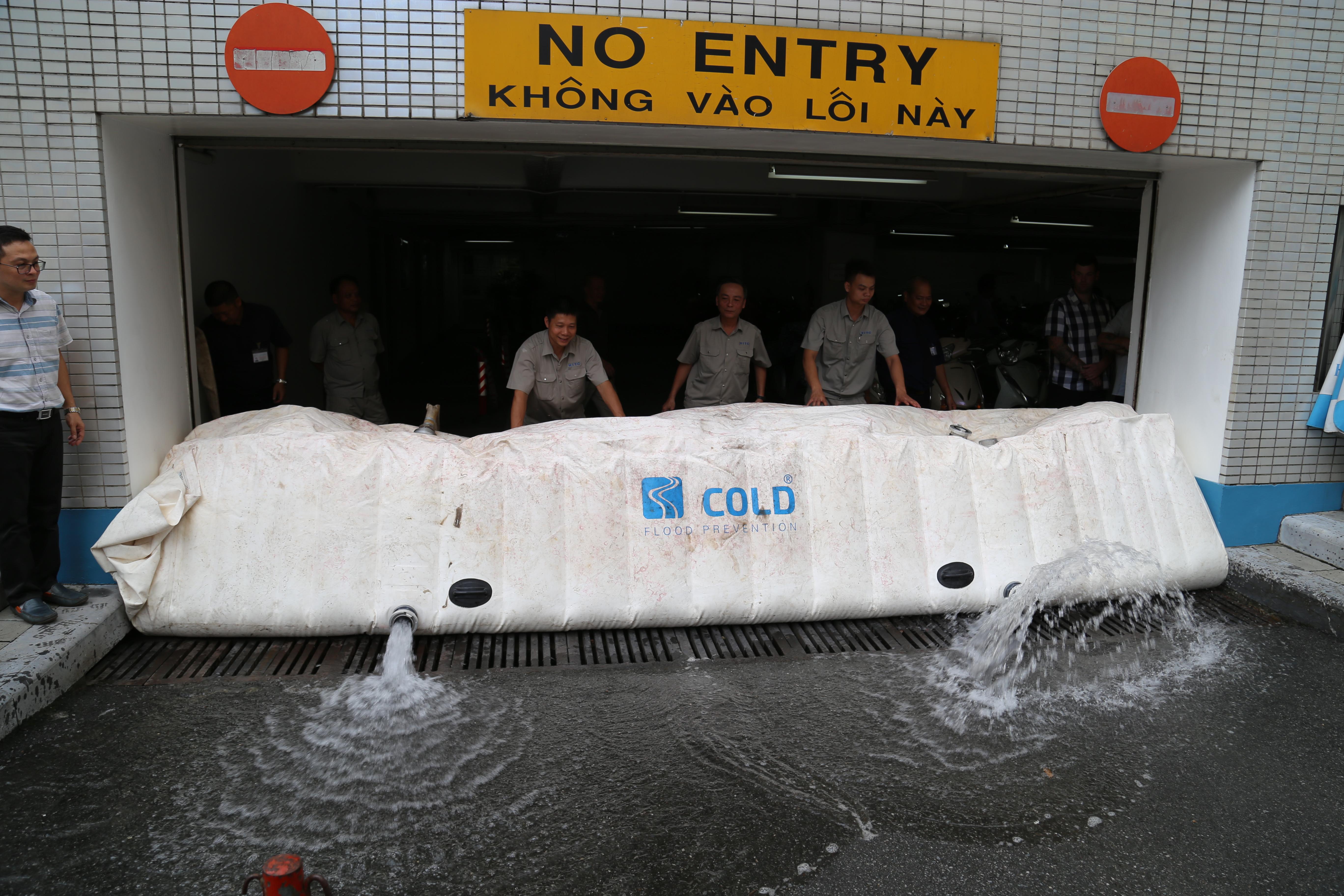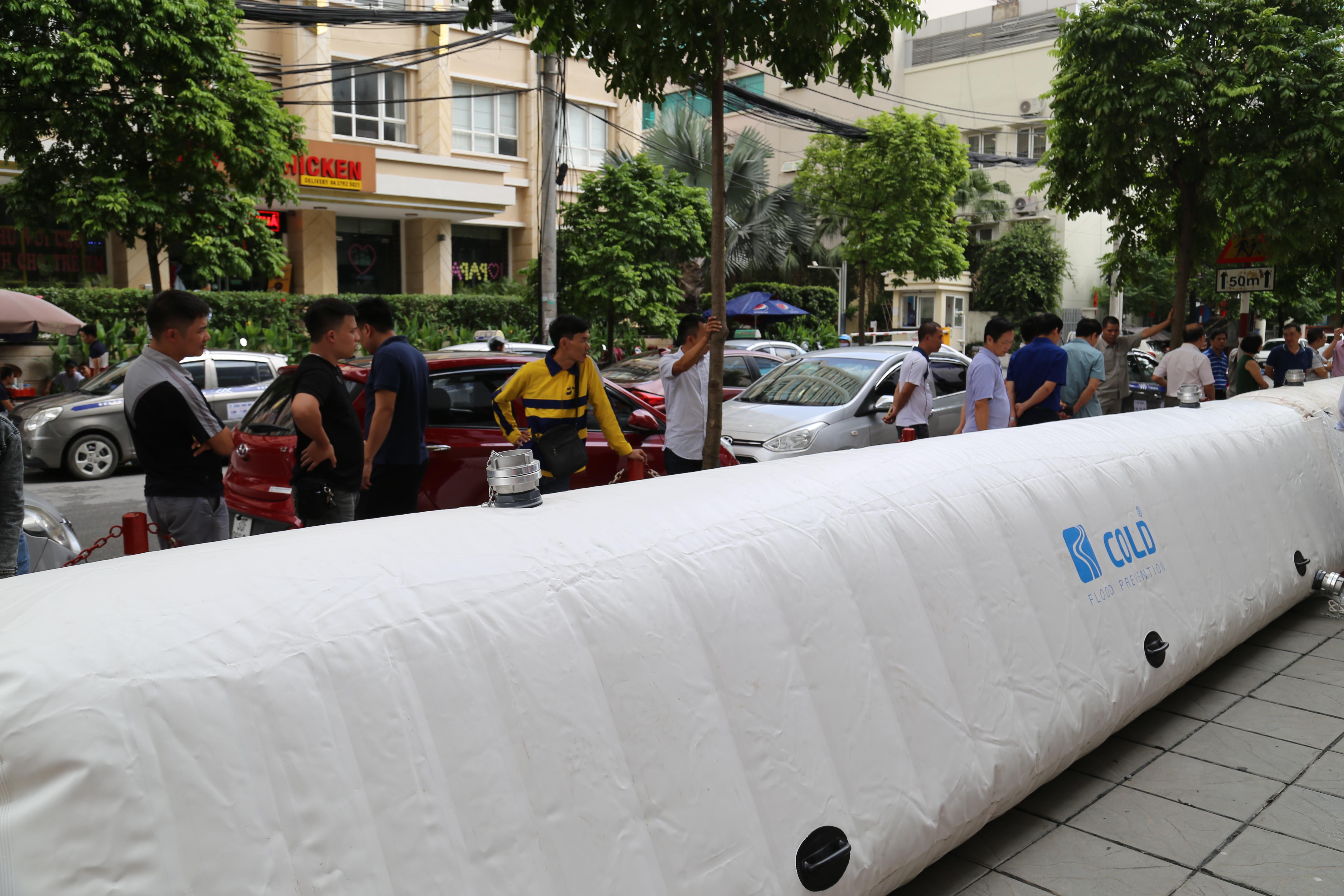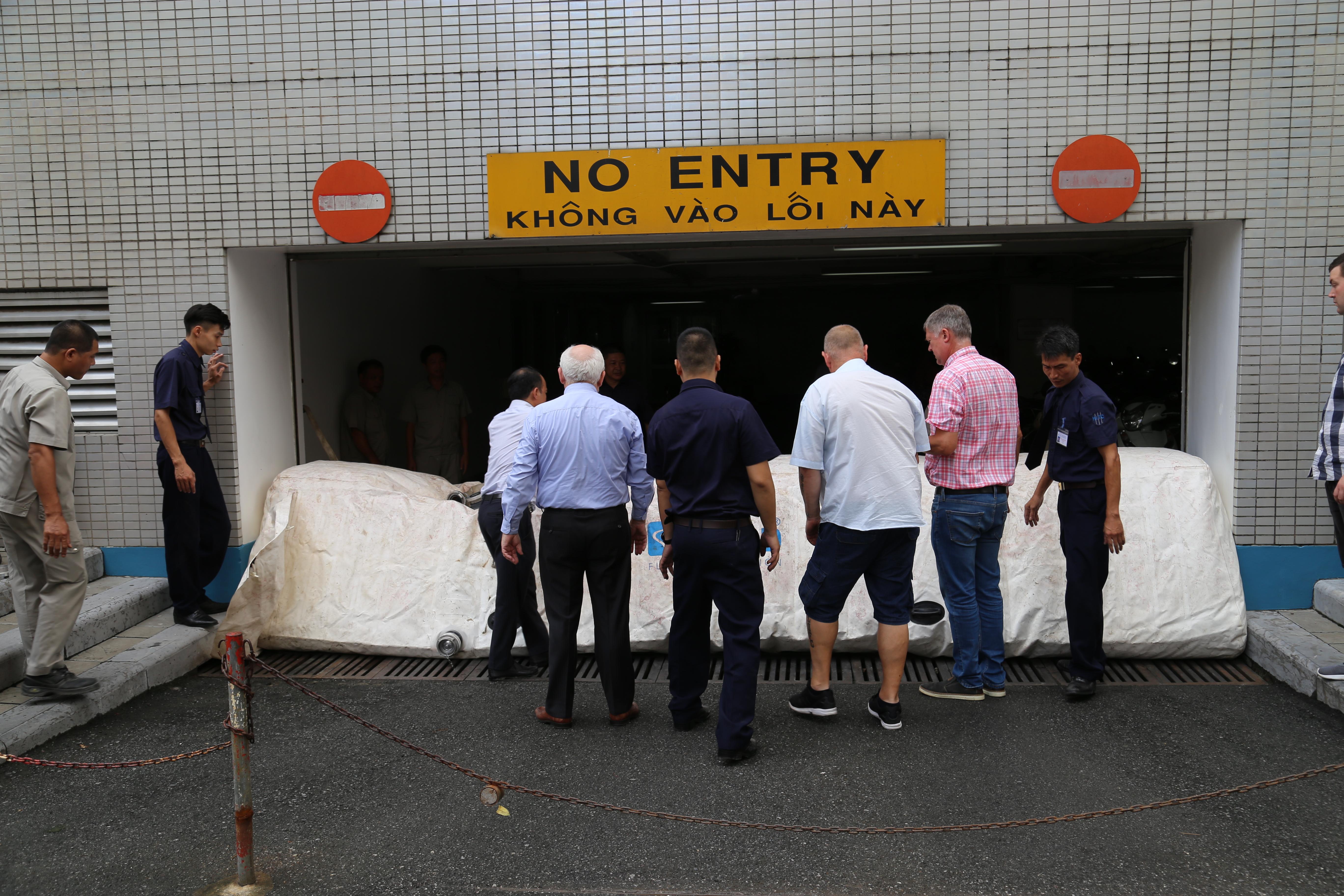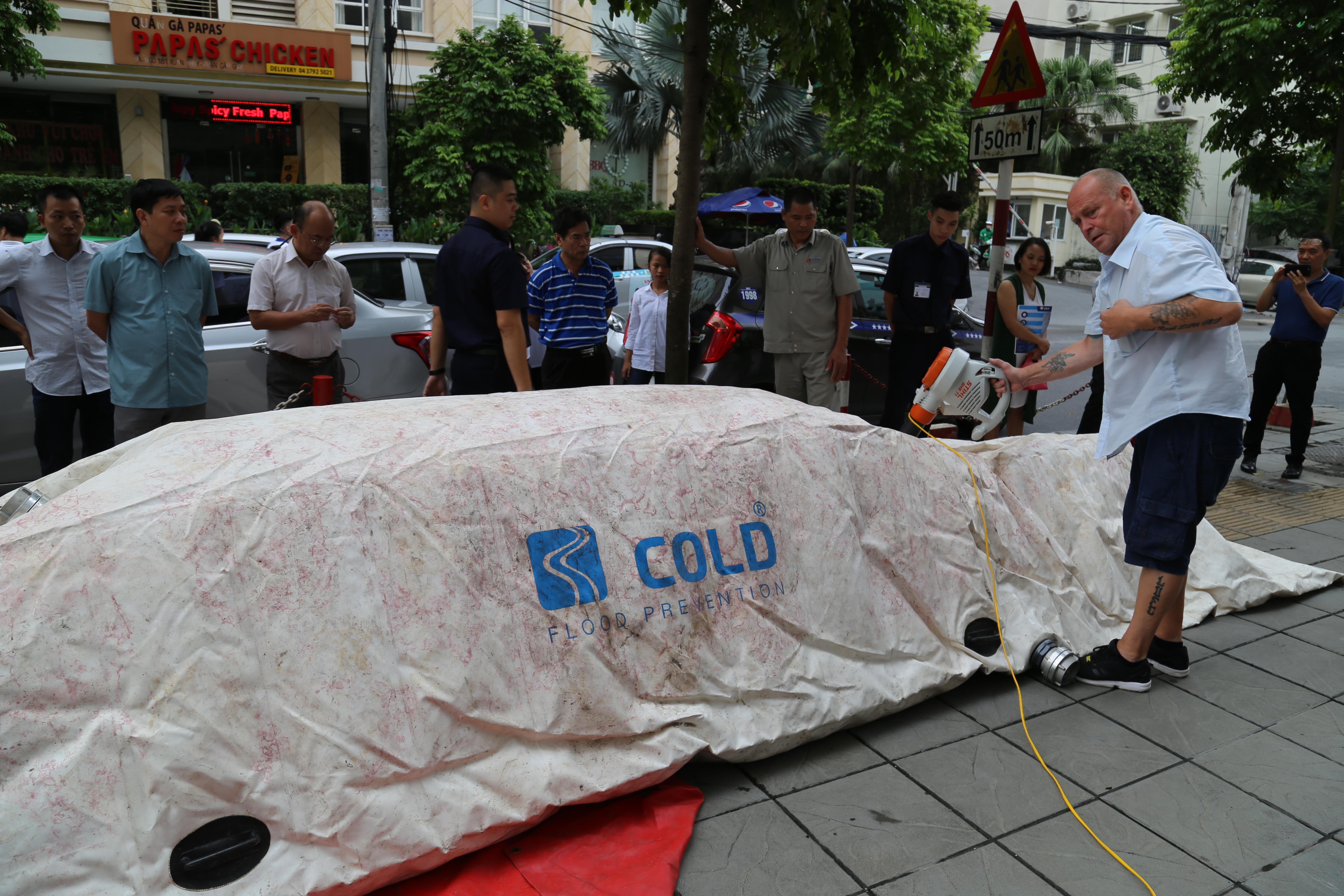Due to its location, Vietnam will be dramatically affected by climate change. Sea level rise can flood low-lying areas and extreme weather events such as cyclones and unusually heavy monsoon rains can increase flooding, sedimentation and river mouth evolution. It is important for Vietnam to have inexpensive and mobile flood barriers, which have a minimal impact on the local landscape. The Danish company Cold A/S took their flood prevention barrier to Vietnam thanks to funding from the Nordic Development Fund (NDF) and the Nordic Environment Finance Corporation (NEFCO).
Modern flood prevention solution
“Flooding is a serious problem in Vietnam,” says Lars Siggaard Andersen of Andersen Consult, who has been closely involved in the company’s international expansion. “Every year floods cause deaths, environmental damage and economic costs. It has been estimated that the costs of flooding in Vietnam equals three per cent of GDP annually.”
Currently sand bags are the main flood barrier method in Vietnam, yet they are labour-intensive and time consuming to put up. Additionally, after flood waters have receded taking them down is a tedious and messy job. Other flood barriers are large concrete walls or hard rubber barriers, but these take a lot of time to erect and also need heavy machinery.
The Cold Flood Prevention Barrier are large PVC bags, which can easily be connected to each other. They are rolled out and filled with water to create a barrier to protect roads, buildings and critical infrastructure from flood waters. The barriers are reusable, which make them a more sustainable and effective solution.
International scale up
“I saw that Cold’s solution was perfect for Vietnam,” says Andersen. “But it is a risky and costly affair to move to Vietnam and it takes time to get established. I recommended to CEO Michael Cold that he should approach Nopef for support to study the possibilities of setting up a local business entity in Vietnam.”
With financing from the Nordic Project Fund (Nopef) a feasibility study was conducted with the aim of establishing operations in Vietnam. Nopef is an instrument supporting internationalisation of Nordic small and medium-sized companies (SMEs) contributing to sustainable development. It is managed by NEFCO and financed by the Nordic Council of Ministers. The study showed the market potential for Cold’s flood barriers in the country, but it also concluded the importance of local establishment to be able to fully enter the market.
“We learned especially two things from the feasibility study,” explains Michael Cold, CEO at Cold A/S. “First, we discovered that we needed to be in Hanoi, close to the political decision-makers, even though the commercial centre is in Ho Chi Minh City. Secondly, we learned that we had to have local partners.”
After identifying possible partners, the company applied for financing from the Nordic Climate Facility (NCF) to help fund the demonstration of their solution. NCF is a challenge fund set up and administered by NDF to finance innovative climate change projects. With the funding from NCF, Cold will set up demonstration sites to pilot the flood prevention barrier in the local context, everywhere from downtown Hanoi to out in the countryside, and raise local awareness of their solution.
“We have so far set-up a local workshop in Hanoi. The long-term plan is to set-up a local production line in the country,” explains Michael Cold.
As a result of the successful market entry and first growth steps in Vietnam, Cold is now planning to expand their operations in the region and is currently conducting a feasibility study in Thailand, supported by Nopef.
“The main challenge is the different business culture between Denmark and Vietnam,” Andersen explains. “Vietnamese are like Danes in that they are relaxed and like to laugh at themselves. However, the Vietnamese are deliberate when it comes to making decisions, while Danes are impatient. The good thing is that everyone can recognise the flooding problem and that this can be tackled by working together.”
Complementing financing instruments
NDF and NEFCO offer different types of financing support to Nordic SMEs aiming for international expansion and growth.
“Nopef and NCF are two financing instruments complementing each other. As institutions we have our own mandates and instruments, but we work closely together to support Nordic companies,” says Søren Rasmussen, Investment Officer at NEFCO.
Nopef financing helps Nordic SMEs to internationalise and scale up their green solutions to countries outside the EU and Efta based on submitted applications. NCF provides grant financing on a call for proposal basis for early-stage projects to facilitate the testing of innovative and climate-relevant business concepts in developing countries.
“We see several project proposals that prior to applying for NCF funding have received funding from Nopef. Knowing that a feasibility study has been conducted confirms the relevance of the business concept,” explains Emeli Möller, NCF Manager at NDF.
“I am very pleased working with NDF and NEFCO,” says Michael Cold. “About 90 per cent of the companies in Denmark are small, and they need this type of opportunity to expand. I hope people realise how important these institutions are in supporting our companies and fighting climate change in a sustainable way.”
Text: David J. Cord
NEFCO
The Nordic Environment Finance Corporation (NEFCO) is an international financial institution established in 1990 by the five Nordic countries - Denmark, Finland, Iceland, Norway and Sweden. NEFCO’s mission is to promote green growth and climate change mitigation as well as to help the authorities and other funding agencies to achieve their goals related to environmental protection and sustainability. NEFCO focuses on small and medium-sized environmental projects and provides its partners with a high level of match funding. Through the years, NEFCO has financed more than 1,300 projects across 80 countries, particularly in Eastern Europe, the Baltic Sea Region, the Barents Sea Region and other Arctic Regions. Read more at www.nefco.org
Nopef
Nopef finances feasibility studies for Nordic small and medium-sized enterprises (SMEs) and midcap companies related to green growth and sustainable development in countries outside EU/Efta. Supported feasibility studies should aim to assess investments and/or the establishment of long-term business operations in the project country. Nopef also supports projects aiming at investments in commercial scale demonstration and pilot projects for green technologies or solutions. The project shall contribute to a direct or indirect environmental impact or an increased environmental awareness in the target countries.





 The Nordic Climate Facility (NCF) is a challenge fund that finances innovative climate change projects.
The Nordic Climate Facility (NCF) is a challenge fund that finances innovative climate change projects.
